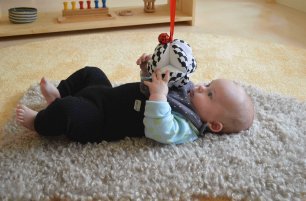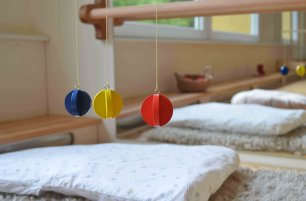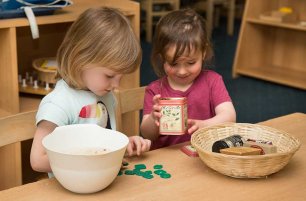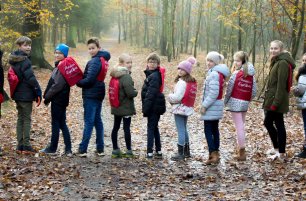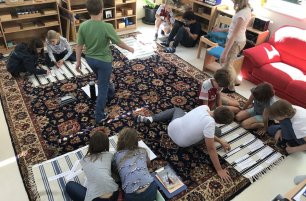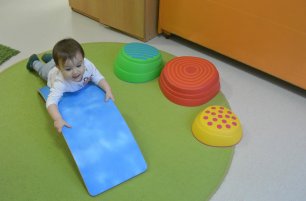7 benefits your child can get when starting Montessori early
“The greatness of the human personality begins at the hour of birth.” Maria Montessori
People are often surprised when they learn that Montessori principles can be applied from birth. We frequently hear parents say, "If only I'd known about these ideas sooner!", which is why we encourage parents to implement Montessori practices as early as possible. There is already so much you can do that would align with Montessori principles - how you touch your baby, talk to them, set up your home, and respond to their attempts at communication. Babies have an absorbent mind that allows them to learn unconsciously, taking in the environment around them effortlessly.

Montessori education goes beyond the boundaries of a classroom and the conventional role of an instructor teaching a child. It encompasses every interaction and experience a child encounters right from the very beginning of their life. This is why Montessori educational principles can be applied and benefit your child within the first months of life.
Independence
Montessori emphasizes fostering independence from a young age. Babies are encouraged to explore and engage with their environment, allowing them to build self-confidence and self-reliance.
Sensorial Development
Montessori materials and activities for babies focus on stimulating the senses through tactile, auditory, and visual experiences. This helps in developing sensory perception and fine motor skills.
Language Acquisition
Montessori environments incorporate language-rich interactions. Even in infancy, children are exposed to various language sounds and spoken words, which can promote early language development.
Order and Routine
Montessori environments emphasize order and consistency. Establishing routines and providing a predictable environment can help babies feel secure and develop a sense of order in their own lives.
Respect for Individual Pace
Montessori education recognizes that each child develops at their own pace. In Montessori baby settings, there is a focus on observing and understanding each child's unique needs and developmental stages.
Fine and Gross Motor Skills
Montessori activities are designed to support the development of fine and gross motor skills. Babies are encouraged to grasp, reach, crawl, and eventually walk, promoting physical development.
Social Interaction
While the primary focus of Montessori in the early months is on individual development, there are opportunities for social interaction with caregivers and other babies. This early exposure to social dynamics can lay a foundation for healthy social development.

The above benefits of Montessori education will remain with your baby throughout their toddler years and beyond, providing them with a solid foundation that will continue to shape their learning experiences as they progress through their formative years and into adolescence.
If you want to start your journey with the Montessori approach as a new parent, join our upcoming Baby & Me playgroup. Learn how to create a supportive environment, how to establish routines, how to communicate, and how you can use the “Follow the Child” concept.
If your child is between the ages of 15 months and 3 years, you can enroll them in our Montessori playgroup for toddlers and their parents.
